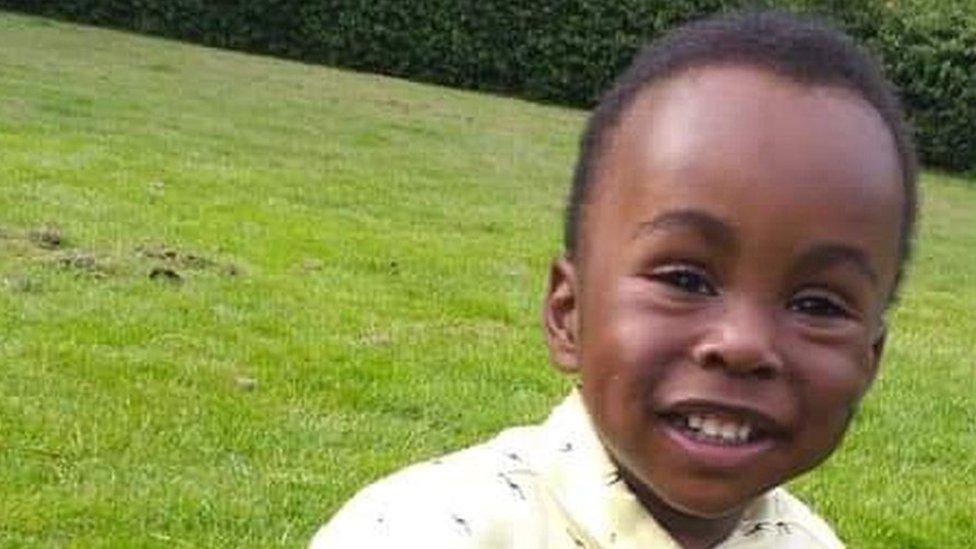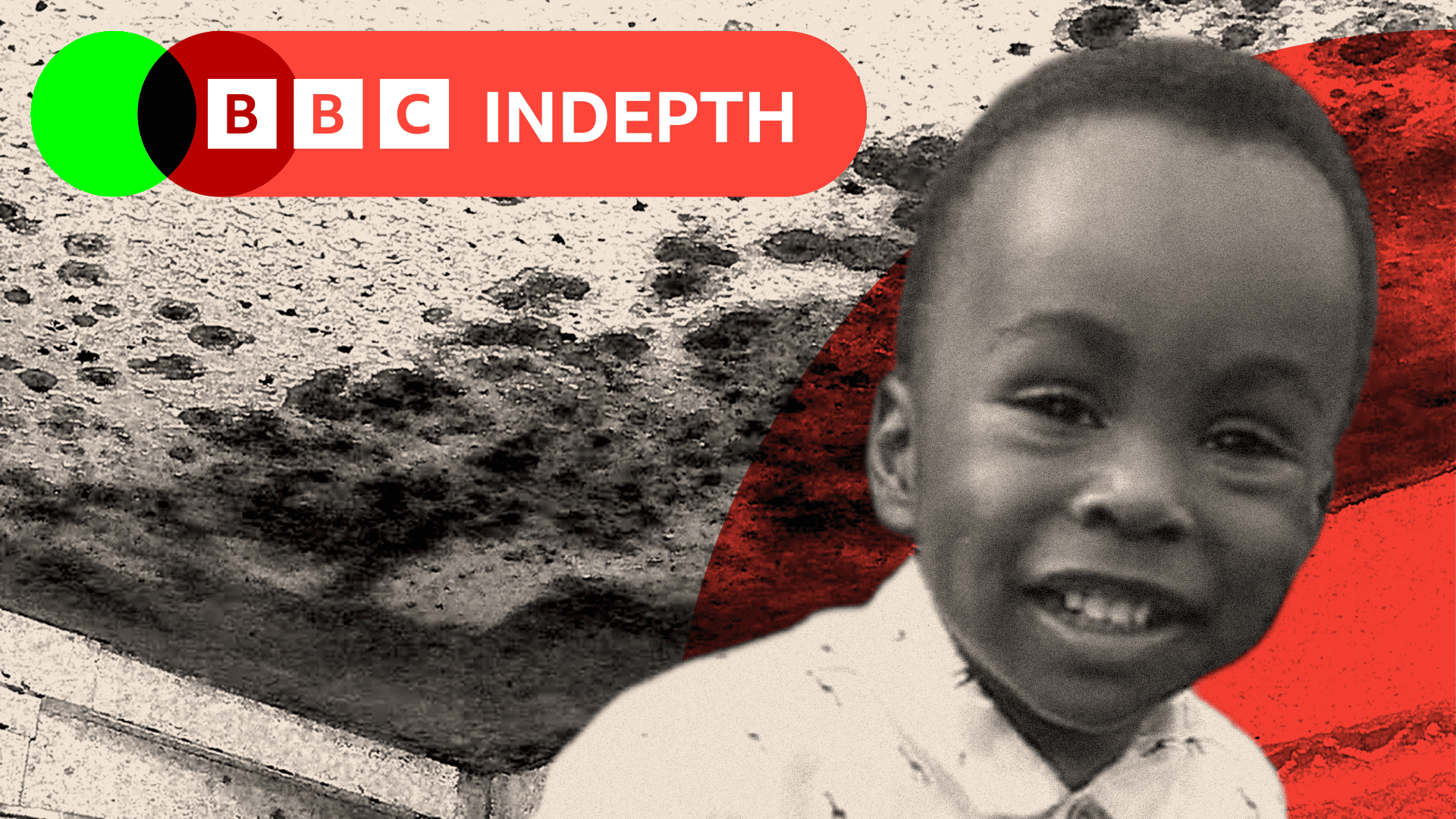'Huge backlog' of mould cases as law introduced
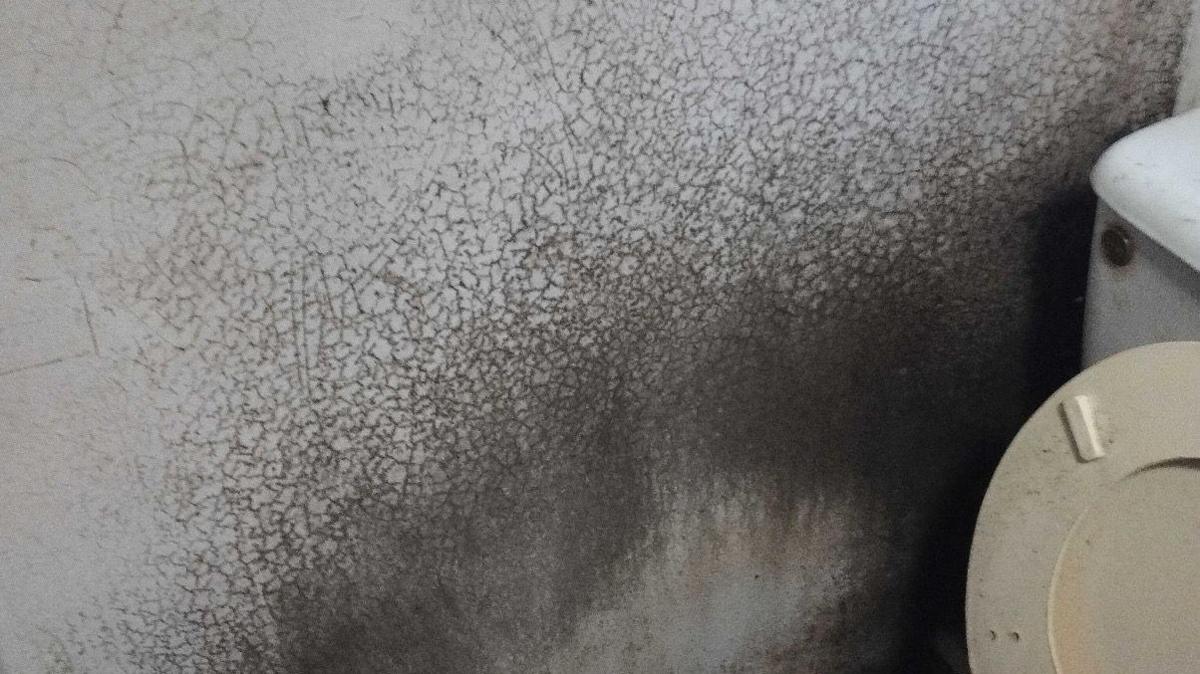
Two Bristol tenants say they were 'so ashamed' of their home after struggling to get help for their damp home
- Published
A city council has admitted it is not ready to comply with a new law obliging social landlords to fix mould issues quickly.
Bristol City Council said it did not have the resources to meet the criteria set forward in Awaab's Law due to a long backlog of existing cases.
The new legislation is named after two-year-old Awaab Ishak, who died after being exposed to mould at his Rochdale home in 2020.
"We inherited a huge backlog in damp and mould and other repairs and we're working through them at speed but there is still a long way to go," said councillor Barry Parsons, chair of the council's Homes and Housing Delivery Committee.
The new law requires social housing landlords to investigate, provide reports and begin remedial works where necessary within days of being made aware of an issue.
In a statement announcing the changes, the housing secretary Steve Reed said it would "give tenants a stronger voice and force landlords to act urgently when lives are at risk, ensuring such tragedies are never repeated".
Bristol City Council currently has 2,200 active damp and mould cases amongst its social housing stock but says this is down from about 3,500 in the summer.
"It really can't be sugar coated that we've got really unacceptable levels of outstanding repairs across all of our council homes - they've been neglected for decades," said Mr Parsons.
"If you're a council tenant, you don't deserve that and we're determined to fix it," he added.

Awaab died after being persistently exposed to black mould at home
Meanwhile thousands of Bristol residents continue to live with serious damp and mould issues.
"We started to withdraw from people, we didn't have people round," said Bradley Godwin, 52, a social housing tenant whose flat in Knowle West had a severe black mould problem.
"It got to the point where we were so ashamed we didn't even invite family in," said his wife Amanda Godwin, 50.
The problem was so bad that Mrs Godwin once caught pneumonia and the couple regularly suffered with chest infections.
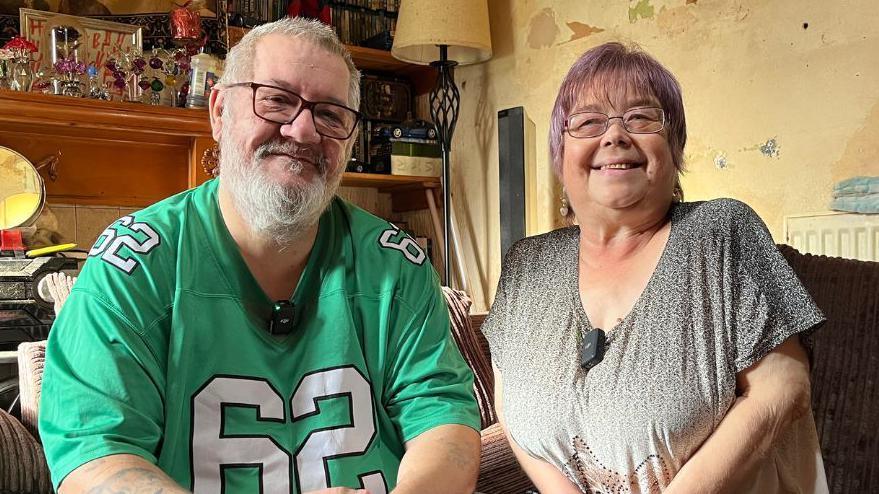
Bradley and Amanda Godwin stopped inviting people over to their home because of the mould
"We were going down the doctors at least once a week at one stage," said Mr Godwin.
They informed the council of their situation numerous times but said they were "fobbed off" until they sought support from the renter's union Acorn.
"A lot of tenants have been waiting for years and years for really hazardous damp and mould to be addressed in council properties and Awaab's law gives some strength to those tenants to challenge that and get fixes done," said Sam Kidel, head organiser at Bristol Acorn.
Mr Parsons said the council had an ongoing scheme to improve the standard of the council's housing stock and had commissioned an external organisation to look specifically at how the authority deals with damp and mould issues.
Despite this, it will not be able to meet the requirements of the new law and deal with existing cases at the same time.
"It's going to be a long time before we're going to be on top of all of that backlog," added Mr Parsons.
Get in touch
Tell us which stories we should cover in Bristol
Follow BBC Bristol on Facebook, external, X, external and Instagram, external. Send your story ideas to us on email or via WhatsApp on 0800 313 4630.
Related topics
- Published31 January 2024
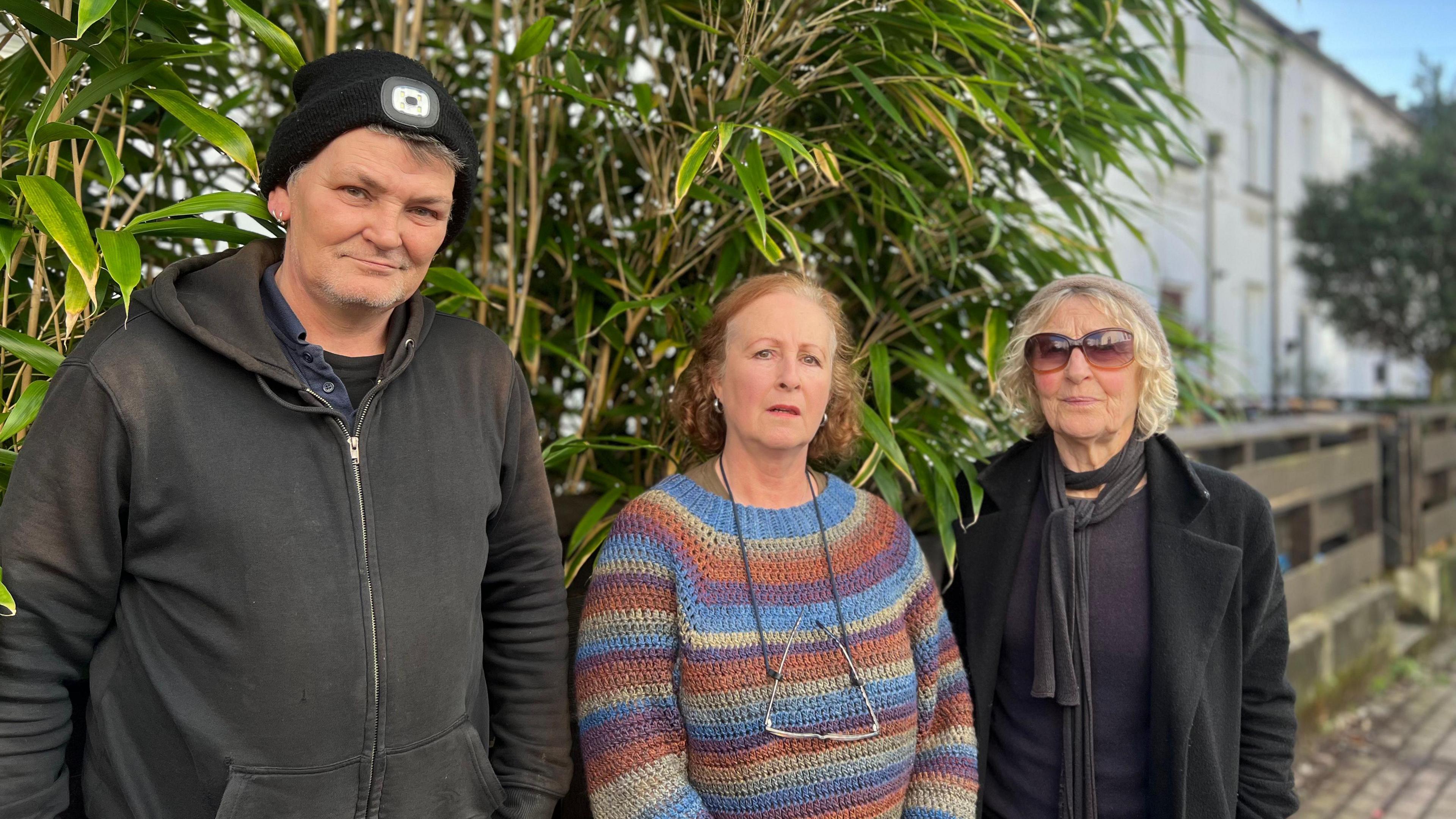
- Published23 May 2024
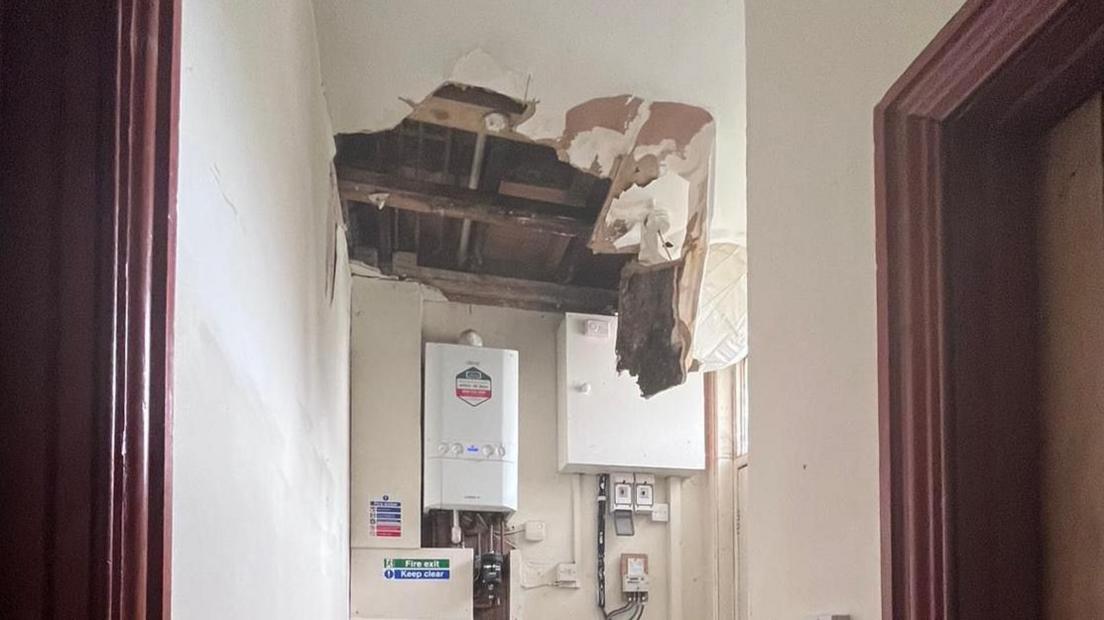
- Published15 November 2022
